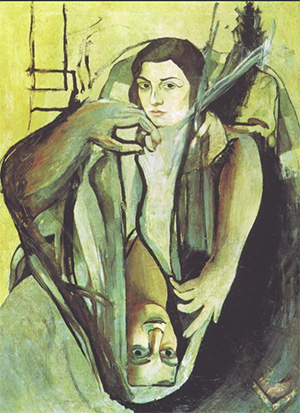Call for Papers
Volume Two
Psychoanalysis and Psychosis
The question of whether or not—and if so, how—psychosis can be treated by psychoanalytic means remains a vexed one. Ever since Freud’s Schreber case (Psychoanalytic Notes Upon an Autobiographical Account of a Case of Paranoia [Dementia Paranoides]), the notion that a psychotic subject will not form a transference, that she doesn’t really care what you think, and so on, has put a damper on analytic attempts to treat psychosis. In addition, medical models of psychosis as organic disease have tended to support the common view that psychoanalysis cannot engage productively beyond the narrower limits of neurosis. And yet, psychoanalytic treatments of psychosis have persisted, and analyses of various forms of psychosis have been carried out by followers of a broad range of master thinkers—Jung or Freud, Klein or Winnicott, Searles or Bion, Lacan and so on. Some of these attempts have involved the design of interdisciplinary treatment modalities that turn around a psychoanalytic center but go beyond the limits of a psychoanalytic treatment per se. Others are more strictly focused on analysis itself. Some practitioners/thinkers have developed approaches to psychosis that involve radical “abstinence”--the absence of the analyst’s social ego--, while others propose that the analyst must step forward with her- or himself in a more relational gesture. In addition, there have been critiques of psychoanalysis—such as the one proposed by Gilles Deleuze and Felix Guattari (who worked at La Borde in France)--that claim psychoanalysis is incapable of welcoming psychosis as such, while at the same time these critiques propose friendly or not so friendly amendments. In recent years, Jacques-Alain Miller, the most internationally prominent spokesperson for the Lacanian discourse, has proposed the provocative notion of “ordinary psychosis,” broadening the notion of psychosis beyond its traditional symptomatic confines. Where, then, is psychoanalysis today on the question of psychosis?
For the second annual special issue of Metalepsis, we are seeking essays that address the question of the psychoanalytic treatment of the psychoses from a broad array of psychoanalytic perspectives. Case studies and theoretical pieces are equally welcome, as well as discussion of cultural artefacts of diverse sorts. Pieces should be between 5000 and 10,000 words. Deadline for submission: August 1, 2022. Please feel free to contact the Editor (Jeffrey S. Librett, jlibrett@uoregon.edu) at any time before the submission deadline with questions or proposals. And please consult the Submission guidelines on the journal website before completing your contribution.
 General submission guidelines can be found here
General submission guidelines can be found here